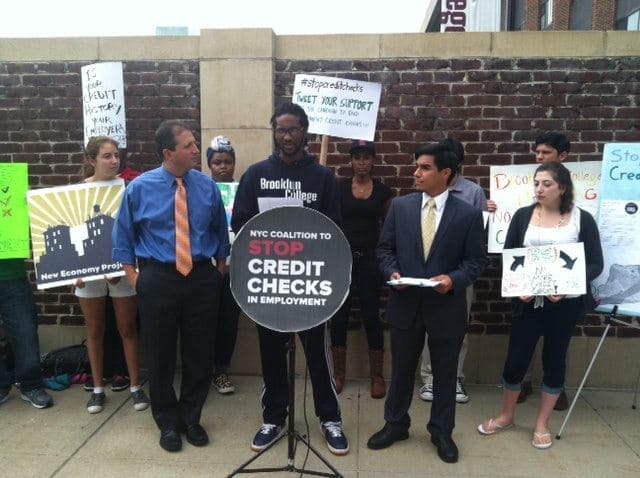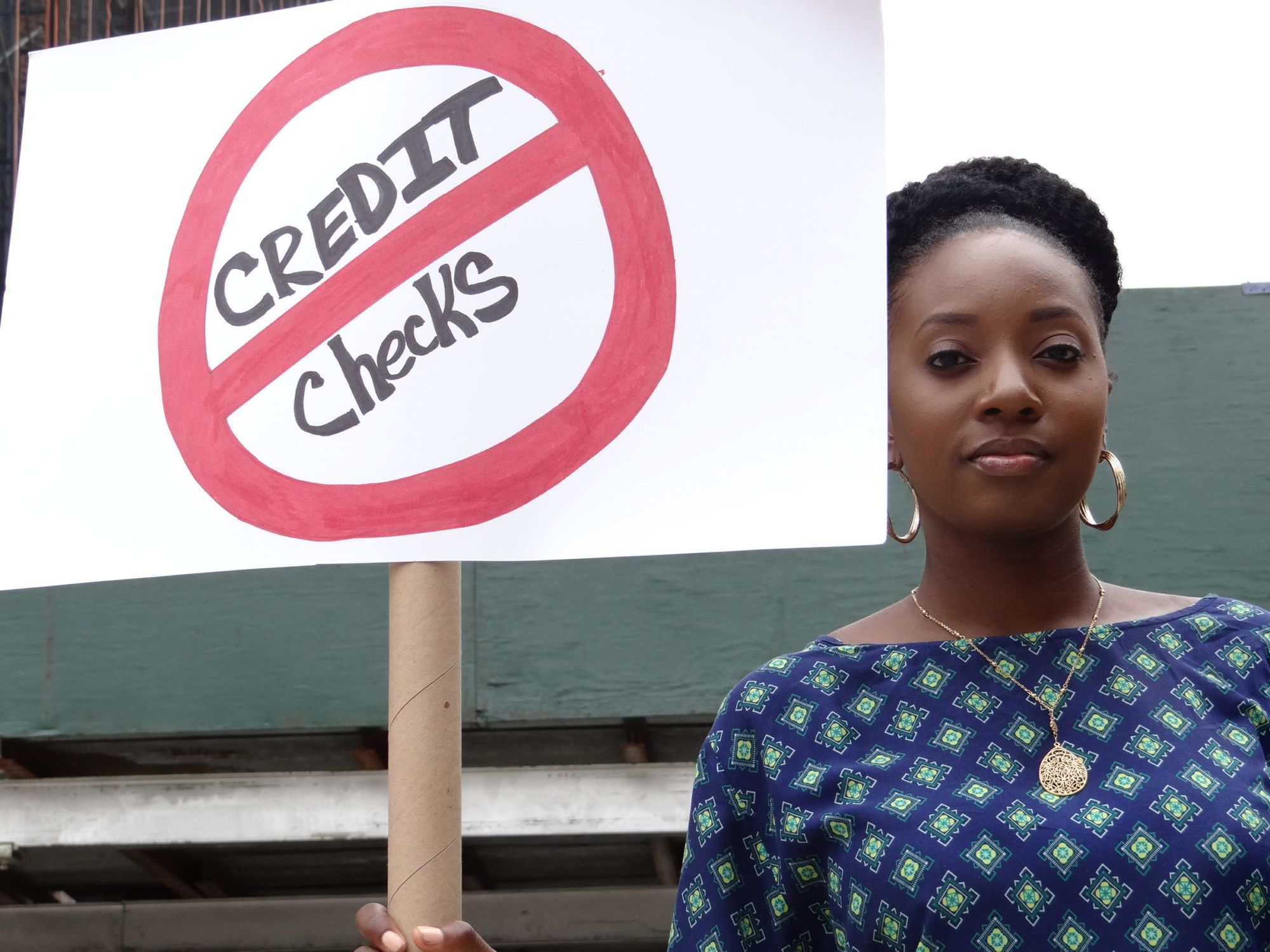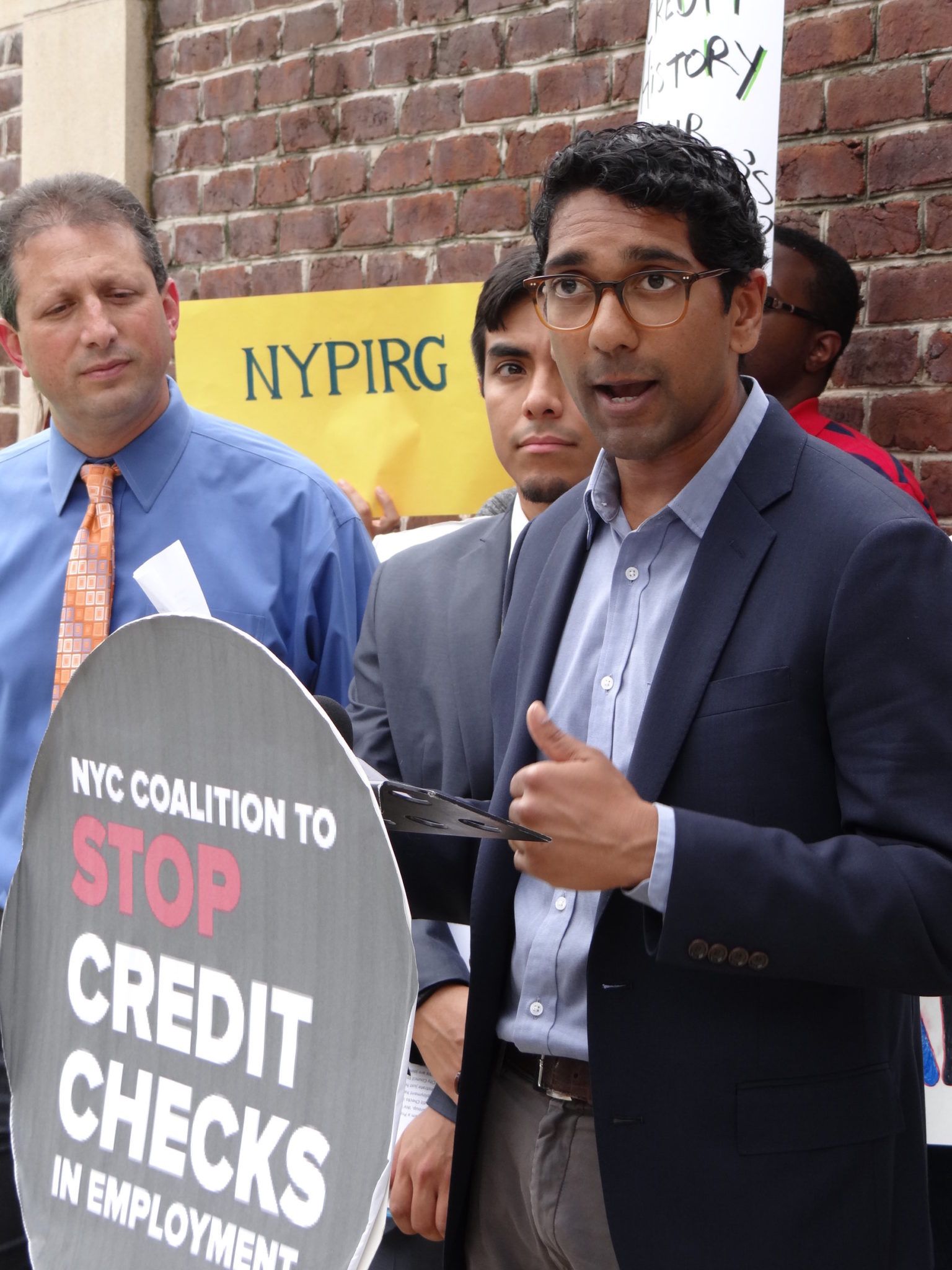Leaders Call For Reform To Hiring Practices Slammed As Unfair


Slamming current hiring practices as unjust, area leaders are pushing for new city laws that would prevent employers from immediately asking about an applicant’s arrest history, as well as ban employment credit checks.
Prompted by the news that New Jersey Gov. Chris Christie signed a bill that prevents employers from asking applicants about their criminal history early in the hiring process, Councilman Jumaane Williams this week urged action on a similar piece of New York City legislation, known as the “Fair Chance Act.”
Introduced by Williams in April, Intro. 318 would bar businesses from inquiring if an applicant has been convicted of a crime until after a job offer has been made. This policy is already in place with city government positions, and the legislation, if passed, would not apply to jobs that require background checks.If an employer discovers their prospective worker does have a criminal history, they would only be able to retract their officer if the conviction was related to the job, or it posed an undue risk to the business. Employers could face being slapped with a $1,000 fine if they inquire about a criminal record before a job offer.
The legislation is an attempt to address dramatically high unemployment rates for ex-offenders, which various studies have found hover around 50 percent. In addition to Williams, other city leaders, including Manhattan Borough President Gale Brewer and Public Advocate Letitia James, have noted that the difficulties ex-offenders face finding work often result in high rates of recidivism.
“It is time New York City joins the ranks of more than 10 states and 60 cities, most recently New Jersey, to give all applicants a fair chance at employment,” Williams said in a statement to the media. “Having a past conviction should not prevent someone from being able to put food on the table or pay their rent.
The Fair Chance Act “ensures that all New Yorkers, including those who have become stigmatized because of previous convictions, will have an equal opportunity to compete for jobs they qualify for,” continued Williams, who said he hopes “to have a hearing on this bill as soon as possible so that New York City can become the next city to enact this important legislation.”

Other lawmakers this week also called for employment reform, gathering with students and members of what is called the NYC Coalition to Stop Credit Checks in Employment outside Brooklyn College to call on the City Council to ban the credit checks that they said in a press release “constitute an unfair barrier to jobs for students saddled with student loan debt.”
Intro. 261, otherwise known as the Stop Credit Discrimination in Employment Act, was also introduced in April and would prohibit the use of credit history for hiring and other employment-related purposes throughout the five boroughs.
“Employers should not deny people jobs based on their credit history,” Councilman Brad Lander, one of the bill’s sponsors, said in a press release. “Whether from catastrophic medical expenses, death of a spouse, or predatory lending, many New Yorkers have poor credit through little or no fault of their own. Recent graduates with spiraling student debt need an equal chance to get a job, if they are ever going to pay it off. This bill is a step forward for fairness, and for common sense.”
The bill currently has 39 sponsors, and supporters are hoping statements Mayor Bill de Blasio made during his run for office are indicative of his ultimate approval, including his campaign website calling employment credit checks a “needless roadblock to economic opportunity.”

Speakers outside Brooklyn College stressed the role that the national credit reporting industry plays in “driving employment credit checks to expand markets and boost profits,” the press release said.
“The credit reporting agencies are part of a powerful industry that has carved out a new profit niche by marketing and selling people’s credit reports to employers,” said Joby Thoyalil, campaigns organizer at New Economy Project. “This is despite the fact that TransUnion, one of the nation’s largest credit bureaus, admitted that there is no demonstrated link between someone’s credit report and their job performance or their likelihood to commit fraud.”
“It’s disgraceful to think that students in New York could be excluded from the very jobs they’re studying to qualify for just because they face difficulties keeping up with student loans and other bills,” said Amy Traub, Senior Policy Analyst at Demos. “It’s time for New York City to stop employers from judging job applicants based on their personal credit information and get rid of this barrier to employment once and for all.”
Photos via the NYC Coalition to Stop Credit Checks in Employment.




